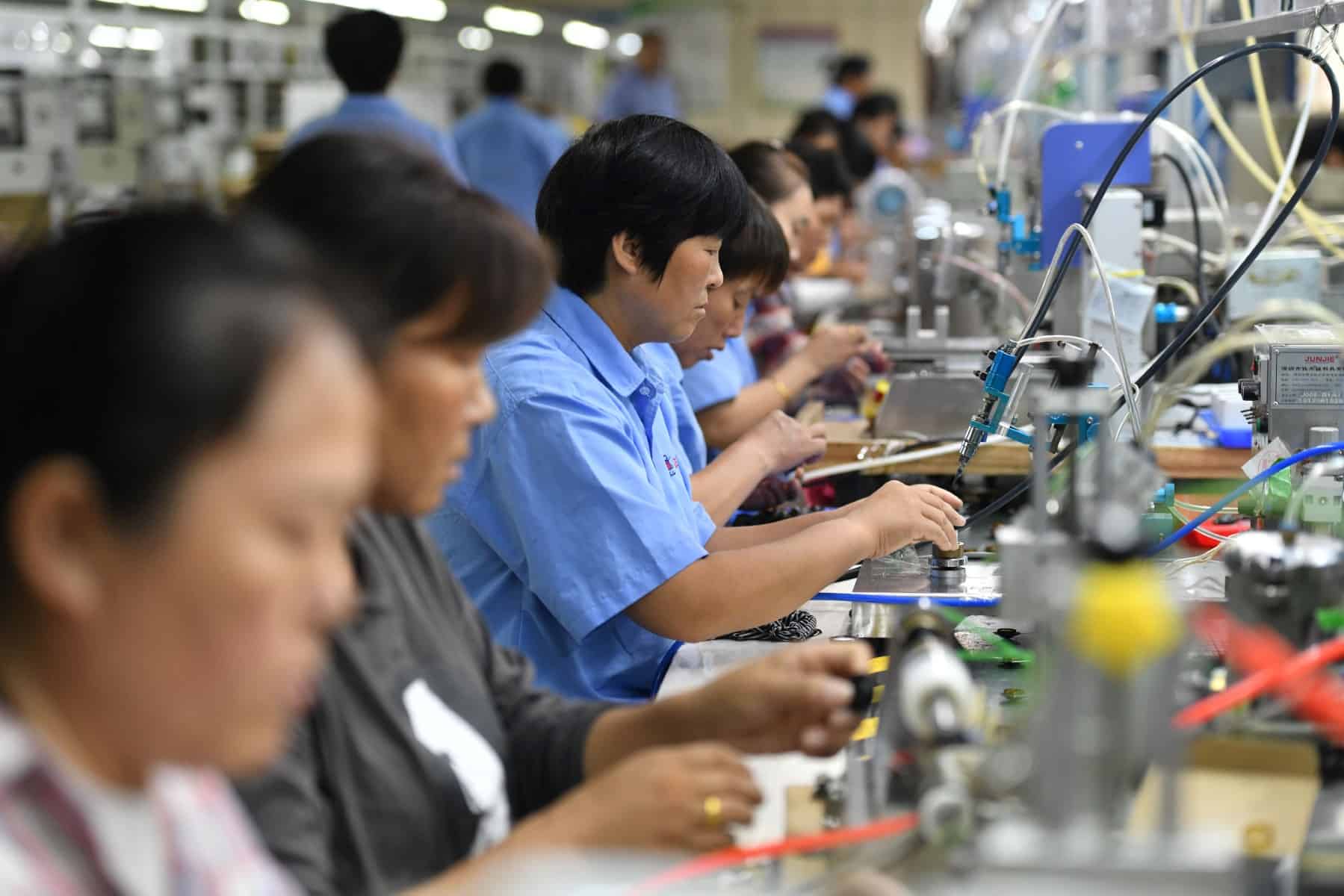Washington, United States– China’s share of global manufacturing jobs will increase by 2050, according to a study out Monday, even as the United States and European Union aim to be less reliant on its products.
The Asian giant’s share of global manufacturing jobs will rise to 43 percent of the total by that year — making China one of the only countries to see growth in such jobs during that time, according to a study by the Washington-based Center for Global Development.
Major Western economies seriously questioned their reliance on China for goods as bottlenecks clogged global supply chains following the Covid-19 pandemic.
Delays and price increases fueled a wave of inflation which is still affecting the global economy, prompting the European Union and United States to implement a risk-reduction strategy concerning China.
The United States is also keen to limit China’s advancement in the production of cutting-edge technology, such as semiconductors necessary for the development of artificial intelligence.
Rich countries are likely to continue to lose manufacturing jobs, with the sector falling from 11.4 percent to 8.3 of the high-income workforce by 2050.
Manufacturing jobs are expected to hold steady across low-income countries at below 8 percent of total employment.
In fact, these countries are expected to see jobs shift from agriculture to the service sector, without experiencing a major transition in industrial jobs.
“This doesn’t mean that poor countries will never escape poverty. New technologies and the shift to services which can be easily delivered across borders can be transformative,” said Ranil Dissanayake, a senior fellow at CGD and an author of the study.
The study was conducted based on the projections of 59 countries representing approximately 75 percent of global GDP.

